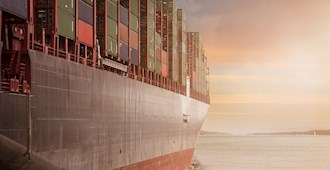Logistics vs Supply Chain Management: Why ERP Software is Important?

Supply Chain Management is a compound term that involves the end-to-end flow of activities related to delivering products or services to the customers. In general, SCM entails the effective and efficient administration of a network consisting of production, procurement, and transportation activities that link everyone involved in the process such as manufacturers, suppliers, retailers and customers. In the supply chain process, three types of flows occur including products, cash and information. Logistics, on the other hand, plays a significant role in the forward and backward flow of products along with physical distribution and movement of goods. In other words, logistics, known as distribution, is responsible for materials-handling, warehousing management, order placement, carrier selection, product or service delivery or recovery. The main difference between logistics and supply chain can be understood better with an example. Consider supply chain management as a human body and logistics as the nervous and circulatory systems. A human body could not function without the nervous system. Hence, logistics helps carry out essential physical flows and information flows.
Using ERP for Supply Chain Management
Supply chain management software used by freight forwarders and shippers present various solutions to optimize some logistics activities. The use of various technologies including artificial intelligence, machine learning and cloud enhance logistics operations and various other processes. Even most of the supply chain operations within warehouses have been automated by various technologies. It is quite cumbersome to manage demand, materials, planning and shipping carriers manually all at once. Using future supply chain solutions such as an ERP for supply chain management gives organizations the visibility necessary to ensure the supply chain, production capacity while managing tracking and terminal operations. The most reliable supply chain risk management software helps manage supplier risks and yield significant advantages. Benefits of using ERP software in a SCM strategy include:
Efficient management of demand and procurement
Reliable processing and documentation
Complete supply chain visibility
Optimized inventory
Enhanced collaboration
Cloud capabilities
Oversight over vendor performance
Data-driven decision making
Greater supply chain resilience
How Supply Chain Solutions Improve Efficiency and Management?
Many supply chain solution companies use it for effective planning, forecasting and collaborating in different business operations. In the supply chain, proper preparation and responsiveness is necessary to get a competitive edge. Business leaders are using cargo supply chain systems, terminal operating systems, and more to focus more on speed, adaptability, and process management with the aim to create flexible sourcing and more integrated supply chain networks to respond consumer’s needs. The container terminal management system and freight supply chain system are most commonly used by freight forwarders and top business leaders to ensure appropriate tracking, greater visibility, rapid responsiveness, accelerated decision making and various other performance improvements. This helps strengthen supply chain operations to a greater extent and prevent major setbacks when disruptions occur in a business.
Noticeable differences between logistics and supply chain
Though both terms intersect each other at certain points, supply chain management and logistics are different from each other in reality. Check out the primary differences to understand perfectly:
Coverage: SCM is a broad term that includes, manufacturing, purchasing logistics, planning, warehousing, delivery and customer services. On the other hand, logistics is a part of the supply chain and covers warehousing, material handling, transportation, packaging and information control.
Purpose: Supply chain management as a whole aims to optimize various supply chain processes in a cost-effective and the most efficient manner to stay ahead of competitors. Logistics aims to provide timely delivery so the business reaches the needs and expectations of customers.
Working process: SCM works in the manner: demand, supply, sales and operation and product portfolio management. On the other hand logistics works as supply, distribution, production management, and product returns.
Logistics plays an imperative role in the supply management process and SCM is incomplete without logistics. To keep moving ahead, there are multiple activities involved in SCM that separate the roads and make a unique difference. Companies use a wide range of supply chain management software to manage the processes more efficiently and in a cost-effective manner.




